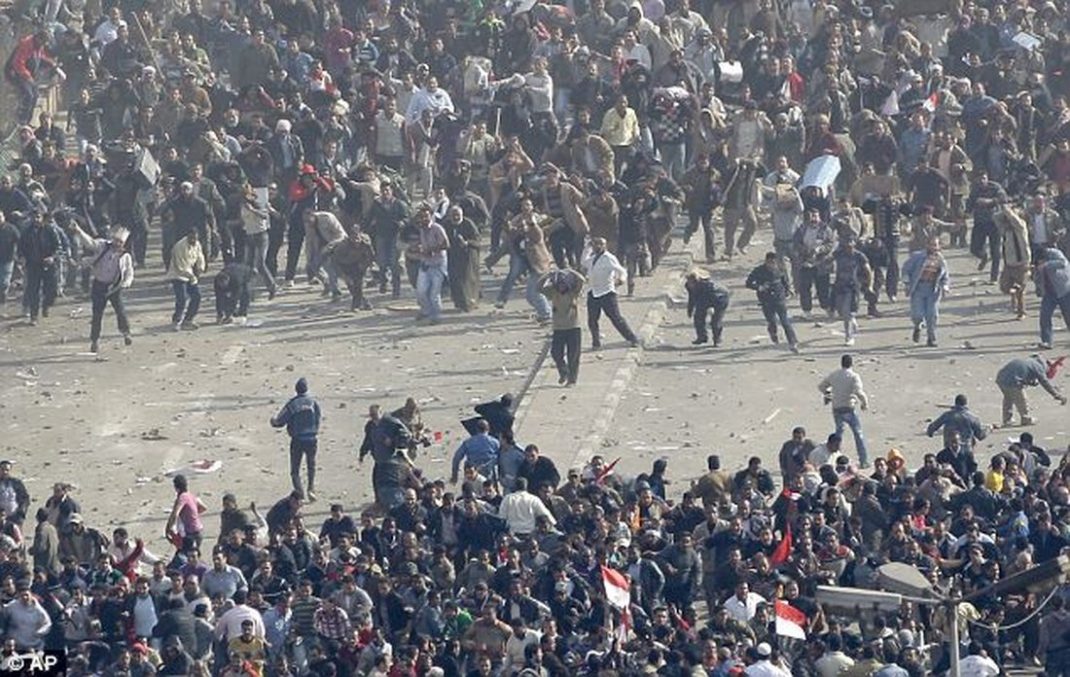By Ross Harrison
 Power dynamics between the major global and regional powers have indirectly influenced the civil wars currently plaguing the Middle East.
Power dynamics between the major global and regional powers have indirectly influenced the civil wars currently plaguing the Middle East.
PART SIX
TOWARDS ENDING CIVIL WARS
How is this discussion about the role the global order played in conflicts in the Middle East relevant for ending the civil wars today?
There has been a strategic shift in that the global powers can no longer take a cavalier attitude toward the security and economic issues of the Middle East.
During the Cold War, the United States and Soviet Union could meddle in the region and even sow civil conflict, with little concern that these actions could redound to their own security issues.
Today that has changed, as the Middle East is both a recipient of and contributor to international politics.
What starts in the Middle East quickly globalizes, meaning that instability in the region affects the security of all states in the international system, in the form of refugees, terrorism, and oil prices.
The fact that the security and economic interests of the great powers are linked to what happens in the Middle East should be a positive development, creating an alignment between what is best for the region and what is good for the global powers.
It should open pathways for the settlement of conflicts and reconstruction, in contrast to the negative externalities of vertical contagion.
There are two possible approaches to how international powers, like the United States, Russia, China, and the European Union, might involve themselves in trying to end the civil wars.
One is a model of directly intervening. This is the approach currently being pursued by Russia, which has tipped the scales in the Syrian civil war toward the government of Bashar al-Assad.
The U.S. also has followed this approach in the northeast part of Syria, where it has been battling ISIS. But Moscow has augmented its direct approach in Syria with an indirect initiative, where it is working with regional stakeholders to bring the war to an end.
It is trying to break the destructive vortex of vertical contagion by coming down hard on the side of Bashar al-Assad, and publicly defending this tilt by touting the principle of sovereignty.
But this ground level involvement is being augmented by the Astana process, whereby Russia is working with regional powers Turkey and Iran to deescalate the conflict zones in Syria, an imperfect process given the complexities on the ground, particularly the potential for Iran and Israel to clash in Syria.
Given that the regional powers, Iran, Saudi Arabia, Turkey, and Israel, hold direct sway over the civil wars in the Middle East, the model of working to forge compromise among them is sound and should be expanded beyond Syria.
One approach for the future would be for the international community to work with the regional powers on some type of security architecture.
While it is unlikely to emerge with civil wars still raging, such an arrangement could become viable after the violence ends to prevent a relapse, which occurs in about 50% of the countries that experience civil war.
Such a regional architecture could also work to break the cycle of vertical contagion and the regional conflict complex, whereby major regional players work counterproductively and at crosspurposes with each other in the countries in civil war.
The Trump administration’s approach contrasts with a regional cooperation model. Instead of working to quiet the region, Trump is taking sides, using Israel and Saudi Arabia as cudgels against Iran.
The problem with this kind of an approach is that it is likely to stoke rather than quiet the civil wars in the region. It gives Iran an incentive to spread its tentacles further into the Arab heartland to create deterrence against a possible U.S. or Israeli attack, and to give it a retaliatory capability should such an attack occur.
Rather than pushing Iran to play a constructive regional role from its current position of strength, this approach will force it into a threat-induced defensive crouch, something that will strengthen hardliners in Tehran, and likely pit Iran’s own national interests against the interests of the broader region.
Another problem with this approach is that it could lead to a ratcheting up of the regional conflict in the Middle East, the result being greater conflict and polarization between the regional actors.
This will come about if the U.S. continues to close ranks with Israel and Saudi Arabia, and Russia and Iran do the same to deprive the United States of influence in the region in a zero-sum fashion.
CONCLUSION
The end of the Cold War didn’t just create a global imbalance, it led to a concomitant shift in the distribution of power in the Middle East, where U.S. allies were emboldened, and erstwhile Soviet allies saw their domestic and foreign power challenged.
Countries like Syria and Iraq had their political and economic legitimacy tested and were forced to face the consequences of losing their superpower benefactor.
This fragility was one factor that made these already tenuous states vulnerable to domestic unrest, particularly given the momentum of Arab Spring forces.
But another way in which this period contributed to the civil wars was in the alliances that formed in response to a moment of unipolarity.
The rebalancing that took place in the region, with the emergence of a resistance front consisting of Iran, Syria, and Hezbollah against a U.S-dominated political order, changed the balance of power in the region and created two opposing camps, which ultimately competed in and perpetuated the Arab civil wars.
And as the wars at the country level unfolded, vertical contagion occurred which created a regional conflict complex.
The period of American unipolarity is long over, and we are now in an era of multipolarity. The question going forward along with Europe and China, coalesce to help bring the civil wars to an end and help the region transition from chaos to stability. While the Trump administration makes this unlikely in the short term, it should be the vision for the future.
…
End
***
Ross Harrison is a non-resident senior fellow at MEI and is on the faculty of the School of Foreign Service at Georgetown University and the faculty of the political science department at the University of Pittsburgh. He has been published in The National Interest, Al Monitor, and The Middle East Journal.
______________





